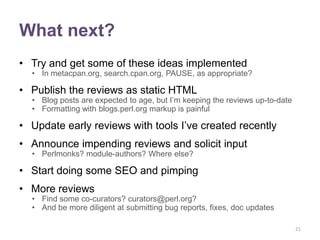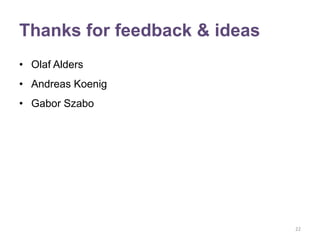This document discusses opportunities to improve curation on CPAN. It suggests implementing features like module tagging, reviews of module groups, registering module use, following semantic versioning guidelines, and retiring old modules. The goal is to provide more context around modules, encourage collaboration between authors, and help users more easily find high-quality solutions on CPAN.
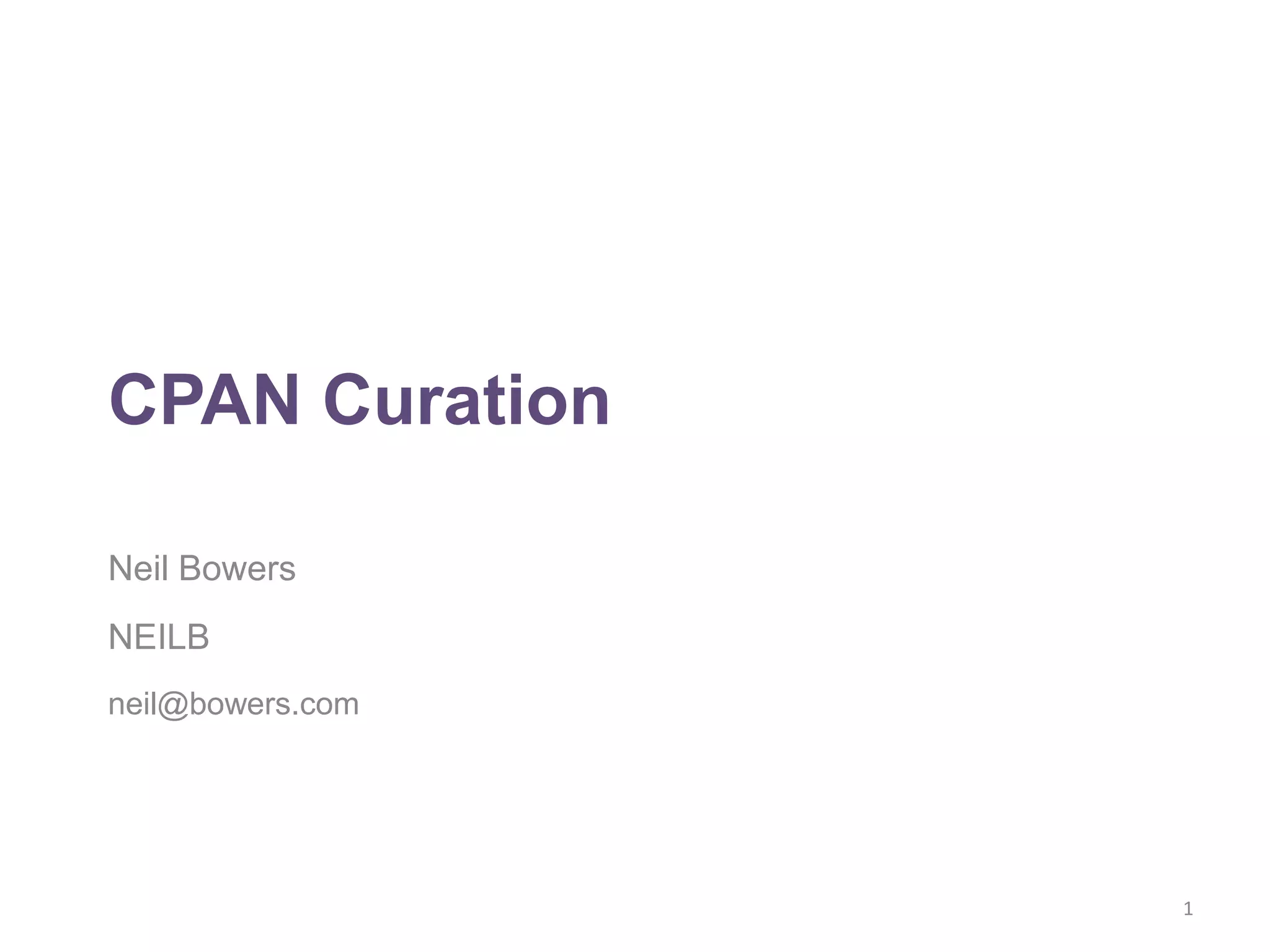
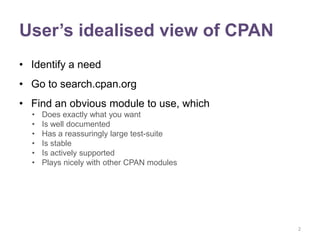
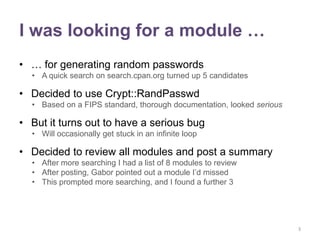
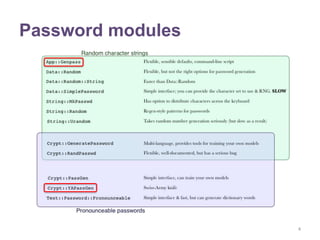
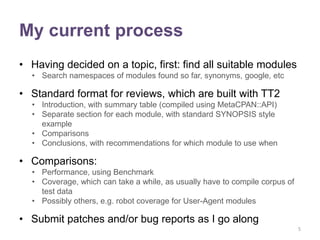
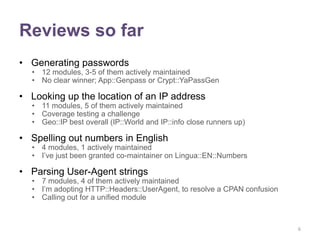
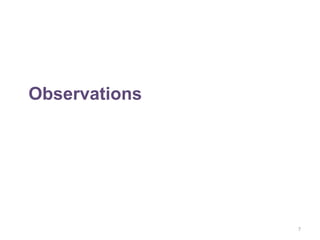
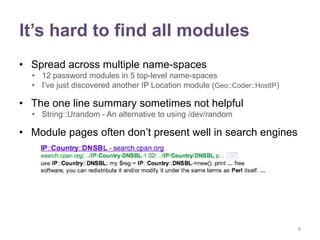
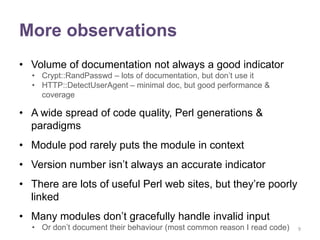
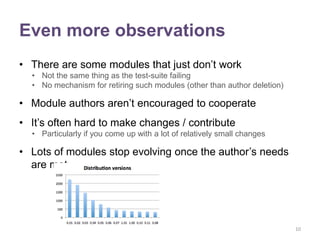
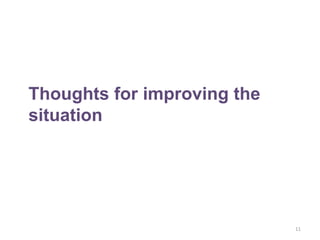
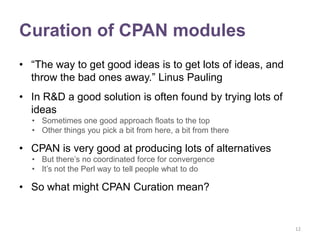
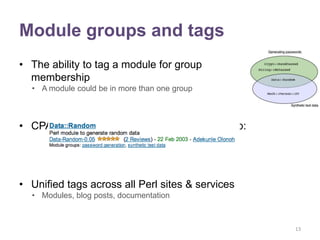
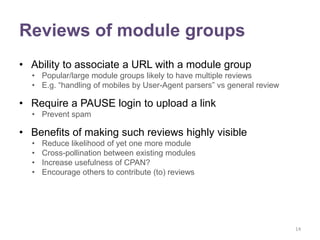
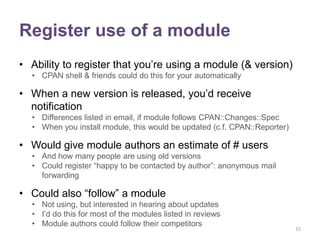
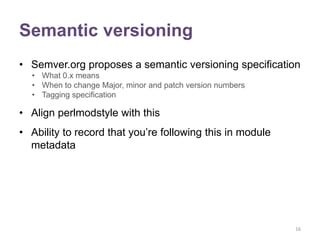
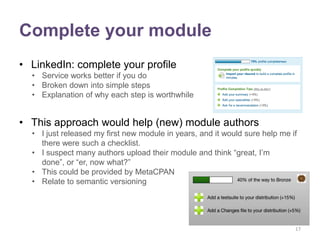
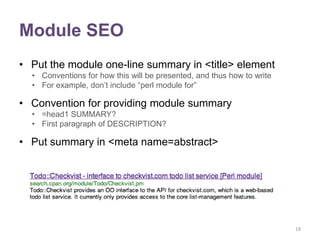
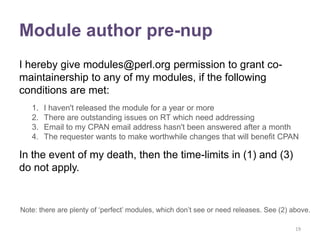
![Process for retiring modules
“[in Perl] we never throw anything away” – Stevan Little
• Old, broken, unused modules stop turning up in
searches
• Would still be available on CPAN, if you really want to get it
• E.g. Math::BigInt::Named
• This could be a long careful process
• People can nominate modules for retirement
• Try and contact the author, to give them opportunity to address problems
• Announce candidates, to give other people the chance to step forward
• Confirm any registered users, once that‟s implemented
• Be less likely to retire a module if there‟s no real alternative.
• But don‟t rush
• Long-dormant and broken modules can be given a new lease of life on
adoption 20](https://image.slidesharecdn.com/cpancuration-111115150856-phpapp01/85/CPAN-Curation-20-320.jpg)
